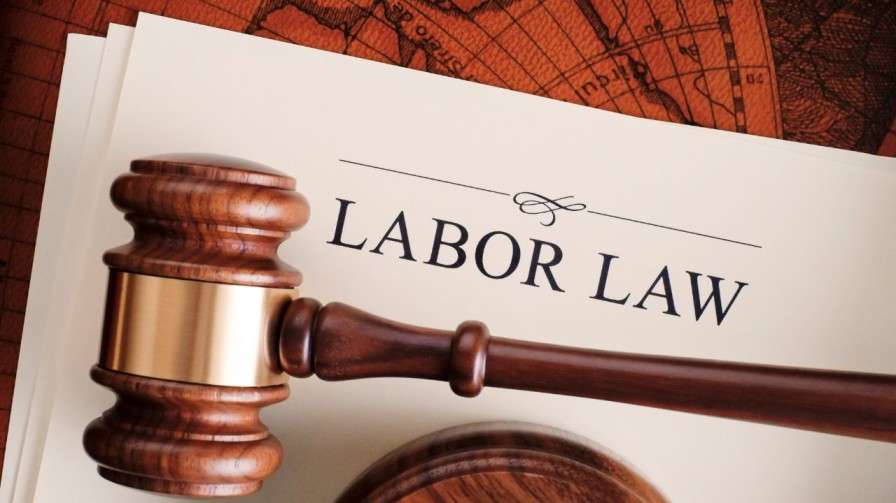In the dynamic landscape of Indian business, understanding and adhering to India’s labour laws is not just crucial – it’s paramount. Yet, for many HR professionals, navigating the intricacies of these regulations can feel like traversing a maze. Fear not, as we unveil a comprehensive guide to mastering India’s labour laws for seamless HR compliance.
Thank you for reading this post, don't forget to subscribe!Interpreting India’s Labour Laws
Embark on a journey of enlightenment as we unravel the enigma of India’s labour laws. From the foundational principles to the latest amendments, we provide an in-depth analysis to equip you with the knowledge needed to conquer compliance challenges.
Key Highlights of India’s Labour Regulations
Discover the cornerstone statutes governing the employer-employee relationship in India. From the Industrial Disputes Act to the Factories Act, we dissect essential legislation to empower HR professionals with a robust understanding of their compliance obligations.
Navigating Employment Contracts and Agreements
Probe into the intricacies of drafting employment contracts that adhere to Indian labor laws. Learn how to craft legally sound agreements that protect both employers and employees, fostering a harmonious and productive workplace environment.
Wage and Hour Compliance: Ensuring Fairness and Equity
Explore the nuances of wage and hour laws in India, including minimum wage requirements, overtime regulations, and payment of wages. Gain insights into best practices for payroll management to uphold fairness and compliance.
Workplace Health and Safety: Prioritizing Employee Well-being
Unveil the legal framework governing workplace health and safety standards in India. From risk assessments to emergency preparedness, discover practical strategies for ensuring a safe and healthy work environment that complies with regulatory mandates.
Employee Benefits and Welfare: Fulfilling Legal Obligations
Navigate the web of employee benefits and welfare schemes mandated by Indian labor laws. From provident funds to gratuity, gain clarity on compliance requirements and best practices for administering benefits to your workforce.
Real-Life Examples and Pictorial Presentations
Enrich your understanding of India’s labour laws with real-life case studies and visual aids. Explore scenarios where compliance triumphs or pitfalls have shaped organizational outcomes, illuminating the importance of adherence to regulatory standards.
Conclusion: Empowering HR Professionals for Compliance Success
In conclusion, mastering India’s labour laws is essential for HR professionals tasked with navigating the complexities of workforce management. By understanding regulatory requirements, implementing best practices, and leveraging resources effectively, organizations can achieve compliance excellence and unlock their full potential in the Indian business landscape.
With our comprehensive guide, you are equipped to embark on a journey of HR compliance mastery, transforming challenges into opportunities for growth and success. Take the first step towards compliance enlightenment today!
Ready to embrace India’s Labour Laws? Learn how our articles related to labour laws can empower you and your organization and drive your compliance requirements. Keep track of my upcoming articles on Indian Labour Laws – Legal Compliance with HR.
Thank you for joining us on this journey towards Legal Compliance in HR which we will be sharing through many articles and we are sure it is going to be easy to understand, adapt and practice at your workplace. Together, let’s make a highly compliance-oriented workplace and make your business risk-free from compliance lapses and succeed in your business.
FAQ’s on India’s Labor Laws
Q: What are the main labour laws applicable in India?
A: The principal labour laws in India include the Industrial Disputes Act, Minimum Wages Act, Employees’ Provident Funds and Miscellaneous Provisions Act, Employees State Insurance Corporation Act and the Payment of Bonus Act, among others.
Q: How can employers ensure compliance with labour laws?
A: Employers can ensure compliance by staying informed about relevant legislation, conducting regular audits of HR practices, providing employee training on legal requirements, and seeking legal counsel when necessary.
Q: What are the consequences of non-compliance with labour laws?
A: Non-compliance with labour laws can result in legal penalties, fines, reputational damage, and even closure of business operations in severe cases.
 hroptimum
hroptimum





